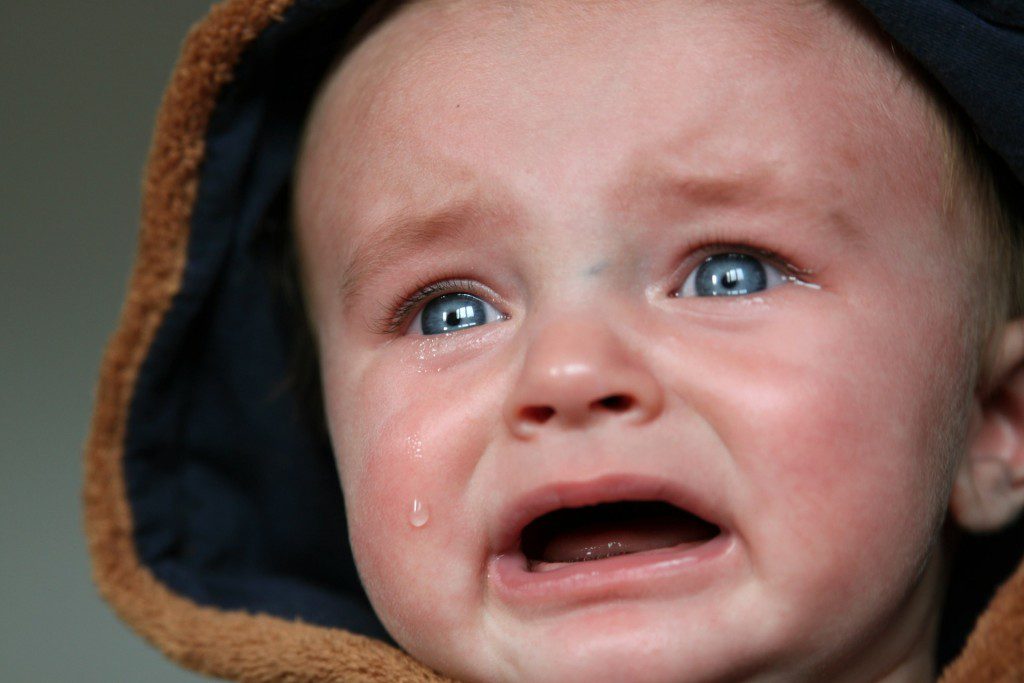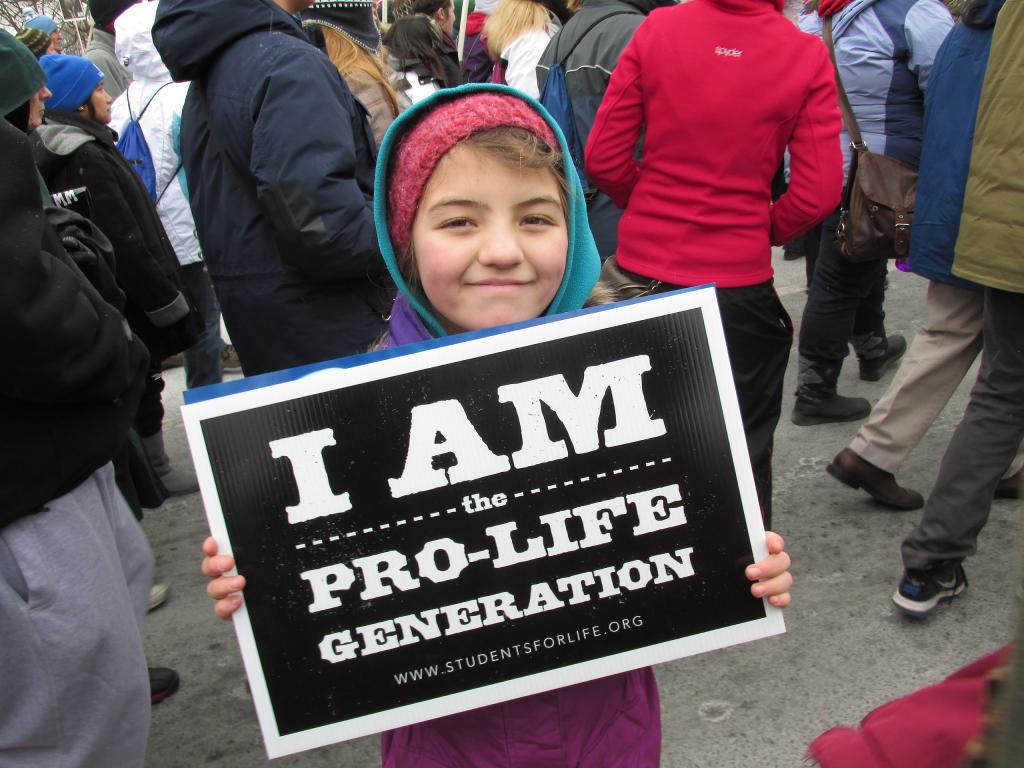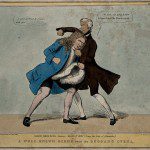
For those of you who don’t follow All The Right People on twitter, former National Review writer Kevin Williamson was hired by The Atlantic a few short weeks ago, then fired after one article, due to the “discovery” of a podcast in which Williamson took the position that women who obtain abortions ought to be treated as murderers. Here’s a report from The Hill which also includes a link to the memo itself. Defenders of Williamson’s termination cast the decision as one of protecting women from a hostile work environment; that is, that fraction of Atlantic employees who had abortions would feel threatened by working with a man who they believe wants them dead. (Sorry – one of the consequences of waiting ’til the weekend to blog on this is that I cannot now find the relevant quotes but I’ll be happy to update the post if a reader can add this in the comments.)
So, first of all, I hear The Atlantic is looking for a writer who has all the “right” credentials without having upset people too badly. Pick me! Pick me! I’m sure I could learn the ropes of reporting soon enough.
But here are some other reactions.
On the sentiment itself
Here’s what Williamson said, paraphrased: if we (speaking among like-minded folk) believe that abortion is murder, than it is only appropriate that our criminal justice system punish it in the same way as any other murder. Also, in general, I’m squeamish about capital punishment, but if we’re going to do so, we should be honest with what we’re doing, by hanging, rather than masking it with lethal injection.
And, again among like-minded folk, this is a worthwhile issue to wrestle with, because the notion that “only the doctors should ever be punished, because women are always just innocent victims” does deserve pushback.
Yes, among women who get abortions, there are many who do so out of a feeling of desperation. They don’t want to do so, but feel cornered, trapped by family finances, an unsupportive or even abusive boyfriend or husband, or by parents who, far from the image of the controlling fundamentalists, make the call to Planned Parenthood the minute they find out. They fear losing their jobs or being unable to stay in college. There are reports of female college athletes being told that if they don’t get abortions, they’ll lose their scholarships. The standard “party line” is that every woman who gets an abortion does so only after much self-reflection and moral anguish.
But there are increasing numbers of abortion advocates who proclaim no such anguish, who insist that there is, in fact, no moral dimension to the decision at all. What percent of the total this is, I wouldn’t claim to know, but they show up in such publications as Slate quite regularly these days, making statements such as, “abortion is as routine a part of healthcare as any other. If I get a UTI, I take antibiotics. If I get pregnant, I get an abortion. Since it’s a normal part of life for contraception to fail, it’s perfectly natural and normal to get abortions, and we really shouldn’t even obsess over reducing the numbers of abortions except to the extent that, for any given woman, regular use of contraception is more health-promoting than occasional abortions.” And then there are the mass of women whose actions are neither clearly those of desperation nor depraved indifference — those who fear not poverty, but loss of that upward career trajectory, for instance.
No, I’m not going to link to these articles to prove my point. I don’t write about any individual such article because that leaves me open to the reasonable criticism that it’s just a single writer which doesn’t prove anything, and, well, the end result is that I have likewise not built up a collection of them. Besides, I tend to think it’s bad for one’s mental health to spend one’s time raging about the follies of the opposition.
But it does mean that this issue of culpability is a reasonable one to discuss. Does the idea of limiting criminal penalties to the doctors themselves come from some notion that women are somehow incapable of making these (im)moral decisions themselves? Does it assume that women so naturally have this tendency toward maternal instinct that no woman would deny this instinct except for grave reasons? And, strictly speaking, in terms of who performs the act of abortion, once upon a time, one might say that it was the doctor who directly suctioned or dismembered the unborn child, but in the era of so-called “medication abortion” (I’d rather the phrase “drug-induced” or “chemical-induced” because “medicine” ought to be reserved for that which is health-promoting), it is the woman who does the direct action, namely, swallowing the pill.
But is abortion murder? That’s a matter of defining what murder means. Even in the case of a woman who aborts her baby with no hesitation, who proclaims, “until it take its first breath, it’s my property to dispose of,” there is still a question of how we respond to the complete conviction of the perpetrator that what she did was perfectly appropriate. In a case of a criminal trial, after all, we’d question the capacity of the individual to know right from wrong. If somehow a change of law suddenly materialized in 2018 America, could a Slate-writer pro-abortion woman be considered to have the capacity to know right from wrong?
Does it matter, really? It is not, strictly speaking, hypothetical, insofar as periodic reports from El Salvador, for instance, describe cases of women imprisoned for abortion whose defenders say that these were actually tragic stillbirths. (According to Wikipedia, in at least some instance, these women were charged with homicide under the belief that they killed the babies after birth; it’s all a bit unclear.) And in Ireland, women who obtain abortions can face prison sentences of up to 14 years. But the consensus of the prolife community is that, so as to avoid conjuring up images of jailed women, and because abortion is currently so prevalent that people can’t picture anything else, you just don’t talk about it. It’s an unwritten rule that Williamson violated.
On Williamson’s Failure to Get With the Program
So why did Williamson violate this rule?
In part, if you listen to the podcast, Williamson is not seething with hate for pregnant women who seek out abortions. These are two men trying to work out ideas within what you’d call a “safe space,” and, after Williamson says, yes, sure, I’d be willing to have identical penalties for abortion and “regular” homicide, he then says, “it’s going to be 150 years before this happens.”
But Williamson’s perspective on abortion is not that of a theoretical moral issue. It’s very personal. Back in 2015 (as shared within the last few days on Facebook), he wrote an article on the subject in which he gave a bit of biography:
Today is the 42nd anniversary of the decision in Roe v. Wade. I never need reminding of which anniversary it is — it’s always the same as my age. I was one of those who entered the world through a pregnancy of the sort we call “unplanned,” though as a Hayekian type I do not object to being the “result of human action, but not the execution of any human design.” I was born about three months — call it a “trimester” — before Roe.
In my case, the result was an adoption. Mine wasn’t, as it turns out, the sort of success story you’d put in a brochure; my adoptive parents were divorced only a few years later, and there was subsequently a great deal of unpleasantness in my home upon which I do not intend to dwell. Some had happier families, some far worse. Eventually, I discovered that I had certain talents, which friends encouraged and teachers helped me to develop. . . . There have been a few rough stretches and some that have been nearly perfect.
None of it was optional.
It is not as though I do not sympathize with women who feel that they are not ready for a child. I, too, have had many developments in life for which I was not ready. Adoption is, like all human institutions, imperfect. But imperfect situations can be improved upon. They are not final.
People like me — we “unplanned,” the millions of us — now live the first part of our lives outside the protection of the laws of these United States. Our lives, and very often our deaths, are instruments of the convenience of others. That was different, in my case, by a matter of a few months. It is impossible for me to know whether the woman who gave birth to me would have chosen abortion if that had been a more readily available alternative in 1972. I would not bet my life, neither the good nor the bad parts of it, on her not choosing it.
This strikes me as very visceral, very personal. Children — embryos, fetuses, use whatever label you like — conceived under undesirable circumstances, are Williamson’s people. Had Roe v. Wade been decided a year prior, Williamson would not be alive.
I was born to married parents, who not only were reasonably financially stable (so far as I know, anyway) but never would have considered abortion. From what I can tell, Williamson views himself as a survivor of abortion, not in that his own mother attempted to abort him, but that only by accident of birth was he not aborted.
(Yes, I know, people who are OK with abortion in general tend to believe, or at least voice the belief that, until some point, whether viability or birth, one isn’t a real living human being that can be killed, but just a “thing” whose existence can in some manner be eliminated, so that the “what if” hypothetical is no more meaningful than a “what if Mom and Dad simply hadn’t crossed paths” sort of question. And it irritates me to no end that these people simply have no ability to understand that, whatever one might personally believe on the subject, the pro-life community believes that unborn children are just as human and just as living and just as morally entitled to protection as everyone else. It’s called Theory of Mind, people!)
I have read multiple times now the claim that The Atlantic‘s continued employment of Ta-Nehesi Coates despite Coates’ on inflamatory writing proves that they are hypocrites. (See for instance this article in The Federalist.) But it strikes me that Coates and Williamson have this in common. Coates’ inflamatory writing is in the context of the situation of black Americans, for example, notorious cases of shootings of black suspects by police, persistent wealth inequality, and the like. These are his people, and he takes it personally, in ways that produce intemperate statements which he may or may not walk back, and the fact that he is emotionally invested in the issue means that he is given a pass on this. Likewise, babies at risk of being aborted before they are even born are Williamson’s people, to a degree that, it seems to me, matters to him more than “his people” geographically, of small-town Texas.
On the Termination Itself
Should The Atlantic have opened itself up to criticism by hiring Williamson in the first place? It seems to me that this magazine very much wants to be viewed as a centrist/left-leaning general interest magazine, to which readers look for informed explanations of the world around them, not ideological “takes” on politics. They hired Williamson in part for his politics but I imagine also for his skill in writing. For them to have just as quickly fired him seems to be taking that publication into a direction that I would have guessed it wouldn’t want to go, that of a firmly ideological site marketing itself to fellow believers, rather than one that attracts a variety of readers who take the approach (as I would have) of, “well, I won’t agree with everything they write, but I can find informative articles there.”
So, yes, a place like the National Review wouldn’t have hired the left-wing equivalent of Williamson, but that’s because they’re explicitly ideological. And maybe The Atlantic still thinks of itself as a broader-interest publication, but has essentially had the decision made for them by those protesting Williamson’s hiring. But it’s disappointing.
And one last thought:
I don’t know a heck of a lot about the world of journalism that Williamson inhabits. Maybe these writers earn so much from all of the various ways that they freelance, from articles they contribute here and there and speaking engagements and TV appearances, that the loss of a “Day Job” isn’t the trauma it would be to you or me. Maybe they have employment contracts that pay out the Big Bucks in severance. But it seems fundamentally much more feckless to hire a man, causing him to leave his former workplace, then terminate him just a few weeks later, than to not have hired him at all.
Image: from pixabay, https://pixabay.com/en/baby-tears-small-child-sad-cry-443393/, public domain












